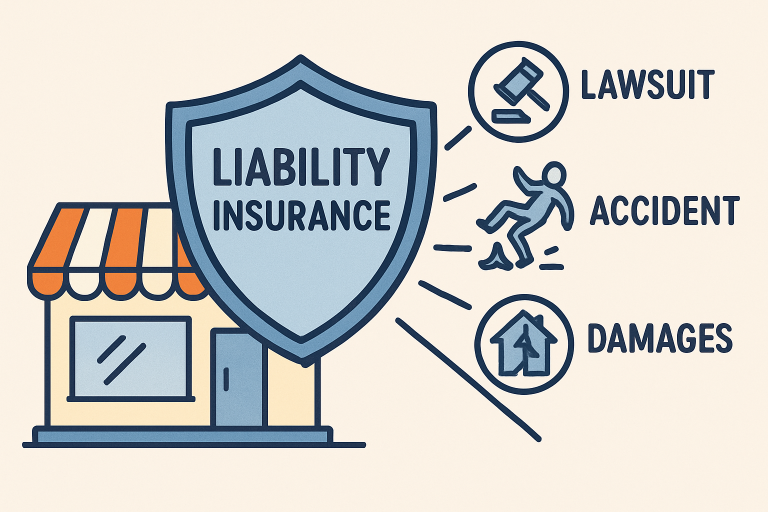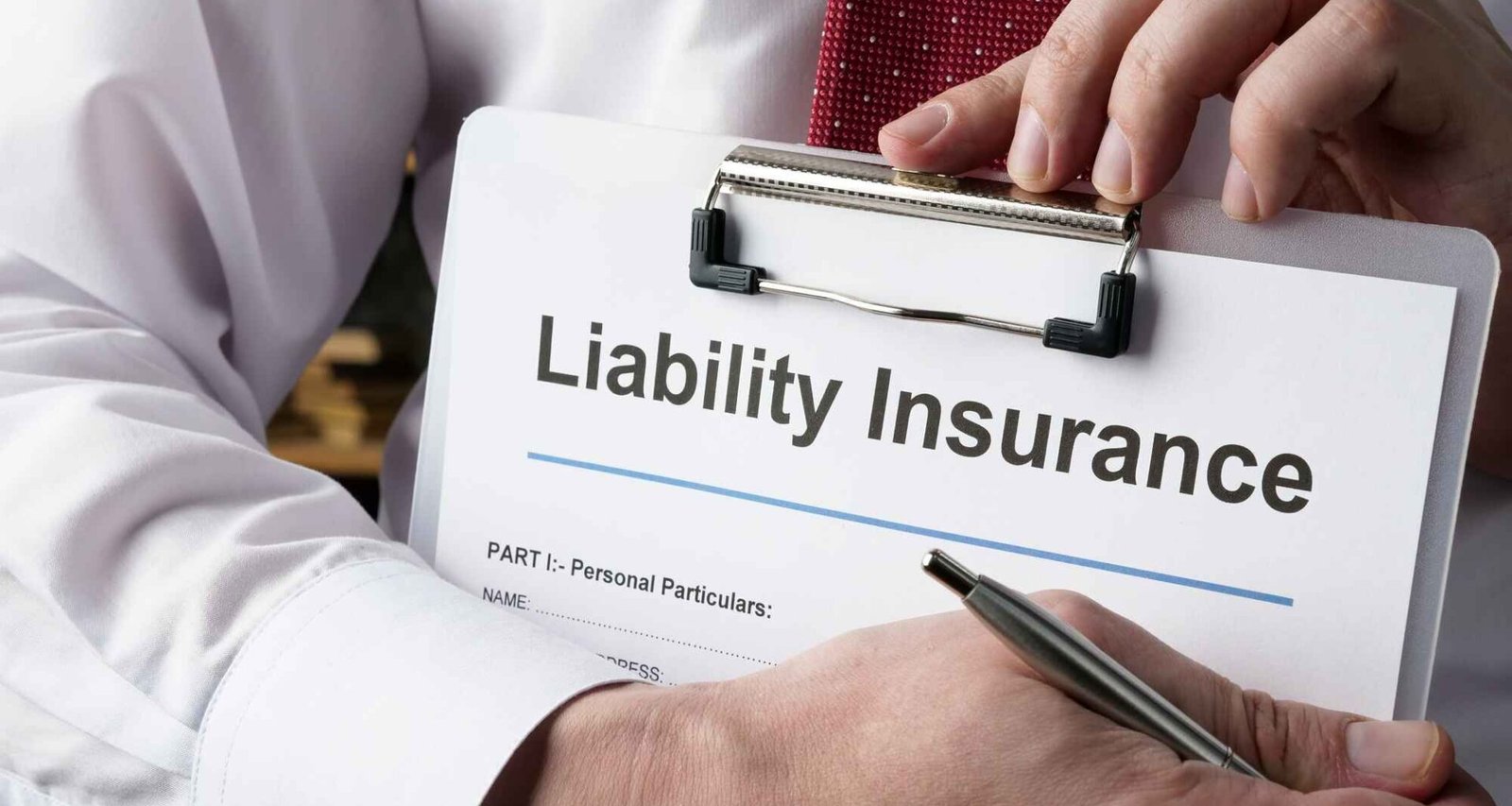Understanding Liability Insurance for Small Businesses
Liability insurance acts as a crucial financial shield for small business owners by helping to mitigate the risks that naturally arise during normal operations. Lawsuits, injury claims, or accidental property damage can quickly escalate into significant expenses that threaten immediate profits and your business’s overall longevity. Whether you operate a bustling boutique, offer professional consultations, or manufacture products, establishing robust liability coverage is a foundational risk management practice. Beyond basic protection, liability insurance demonstrates to customers, partners, and investors that your business takes its responsibilities seriously and is prepared for unforeseen events. If you’re currently unsure about the adequacy of your policies or want to explore your coverage options, partnering with a reputable insurance provider is a proactive step toward securing your business’s future.
Many entrepreneurs underestimate not just the range of liabilities that can impact their operations but also the magnitude of the possible financial impact stemming from an isolated incident or unexpected lawsuit. The significance of liability coverage extends far beyond the need to meet legal requirements; it provides ongoing peace of mind, reinforcing your company’s resilience. In today’s fast-changing business world, where new risks can emerge rapidly—from cyber threats to evolving regulatory environments—having the right insurance is about planning for what you can and cannot predict. In short, liability insurance is an investment in your business’s stability and reputation.
The Underinsurance Epidemic Among Small Businesses
Recent data reveals a trend that should concern every small business owner: the widespread issue of underinsurance. Studies have shown that nearly 75% of small businesses lack enough coverage to fully protect against the financial fallout of a lawsuit or accidental claim. This shortfall is further compounded by the revelation that over 70% of these owners do not thoroughly understand the terms, scope, or limitations of their insurance policies. Such knowledge gaps expose many businesses to the very liabilities they assumed were already covered.
The reasons behind underinsurance are varied and often rooted in misconceptions. Some owners attempt to cut costs by purchasing minimal coverage, believing their risk profile is too low to justify comprehensive protection. Others assume that being a small business means they are less likely to be targeted by legal claims or that only larger companies face serious lawsuits. In truth, small businesses are frequently seen as attractive targets for claims due to their perceived inability to mount a strong legal defense or cover unexpected settlement costs. The financial consequences of just one uncovered event can deplete years’ worth of savings and force even thriving businesses to close their doors. This reality underscores the need for every small business owner to understand the true value of comprehensive and up-to-date insurance coverage.

Common Types of Liability Coverage
Selecting the right liability coverage is the cornerstone of effective small business risk management. Navigating the insurance market can feel overwhelming, but understanding the fundamentals can greatly simplify your search for the right policy:
- General Liability Insurance: This core policy protects your business against third-party claims of bodily injury, property damage, and reputational harm, such as advertising-related issues. General liability insurance is ideal for storefronts, offices, and any business with regular in-person interactions. For instance, if a client slips and falls while visiting your premises, this coverage can manage both medical expenses and legal fees, shielding your business from hefty out-of-pocket costs.
- Professional Liability Insurance: Sometimes called errors and omissions (E&O) insurance, this policy is vital for consultants, advisors, and service providers. It protects against claims arising from alleged professional negligence, mistakes, or failure to deliver promised services. If, for example, a client believes that your advice directly led to a financial loss, this coverage could prove indispensable in covering defense costs and possible settlements.
- Product Liability Insurance: If your business manufactures or sells products, this insurance is essential. Even with the most rigorous quality controls, defective products can still slip through. If someone is injured by a product you offer, or property is damaged, product liability insurance will help cover the resulting claims and litigation, protecting your bottom line.
- Commercial Umbrella Insurance: Providing an additional layer of protection, umbrella policies extend the payout limits of your other liability coverages. This is especially important for businesses experiencing growth or those in higher-risk industries where claims can escalate. A commercial umbrella policy is vital when primary insurance coverages reach their cap, ensuring your company doesn’t face financial disaster.
Why a Layered Coverage Approach Matters
No single policy can fully shield your business from every type of liability. By layering multiple insurance policies tailored to your industry, size, and operations, small business owners address a broader range of risks and close critical coverage gaps. This comprehensive approach is further bolstered by routine consultations with insurance professionals who can help identify areas of vulnerability and recommend policy adjustments as your business evolves. For more insights into insurance layering, visit this guide from the Insurance Information Institute.
Steps to Ensure Adequate Coverage
Establishing and maintaining thorough liability coverage is not a one-time event but an active process that must adapt alongside your business. Here is a step-by-step strategy to make certain your business remains well-protected:
- Assess Your Risks: Start by clearly and thoroughly evaluating your business’s unique liabilities. Consider factors like location, client interactions, product lines, data handling, and industry-specific risks. Scenario planning—visualizing possible incidents or claims—can help you pinpoint vulnerabilities and align coverage accordingly.
- Consult with Professionals: Insurance can be complex, and choosing the wrong coverage or missing essential protections can have lasting repercussions. An experienced agent or broker, familiar with small business risks, can guide you in selecting policies that fit your needs, ensuring you’re neither underinsured nor paying for redundant coverage. To choose the right agent, visit the Small Business Administration’s insurance resource.
- Regular Policy Reviews: Businesses aren’t static—your insurance shouldn’t be either. As you expand services, hire new workers, enter new markets, or grow your customer base, scheduling annual (or semi-annual) insurance reviews is essential. These checkups ensure your coverage reflects current realities, helping prevent expensive coverage lapses from unanticipated growth or operational pivots.
- Educate Yourself and Your Team: Understanding exactly what is—and isn’t—covered under your various policies can prevent nasty surprises when incidents occur. Take the time to read policy documents thoroughly, attend training sessions with your agent, and keep staff informed of best practices and proper protocols for reporting incidents or claims. This collective understanding forms a defensive culture, reducing risk across daily operations.
Proactive insurance management is a dynamic, ongoing process that should grow in scope, complexity, and sophistication right alongside your business. Constant learning, team engagement, and open communication with your providers are invaluable in plugging small but costly holes in your defenses.
Conclusion
Liability insurance is not just another line item on your business’s list of expenses—it is the bedrock of your company’s resilience in the face of uncertainty. When you make regular, comprehensive reviews and updates to your insurance portfolio, a key part of your growth strategy, you don’t just defend yourself from potential legal and financial hardships; you empower your business to innovate and expand with confidence. Don’t wait for a lawsuit or a major claim to expose missing coverage—make liability insurance a priority for lasting peace of mind. For expert assistance or to explore your coverage options, connect with a trusted insurance provider today.
Key Takeaways
- Understanding and securing appropriate liability insurance is crucial for small business protection.
- Many small businesses are underinsured, exposing them to significant financial risks.
- Regularly reviewing and updating insurance policies ensures coverage aligns with evolving business needs.








